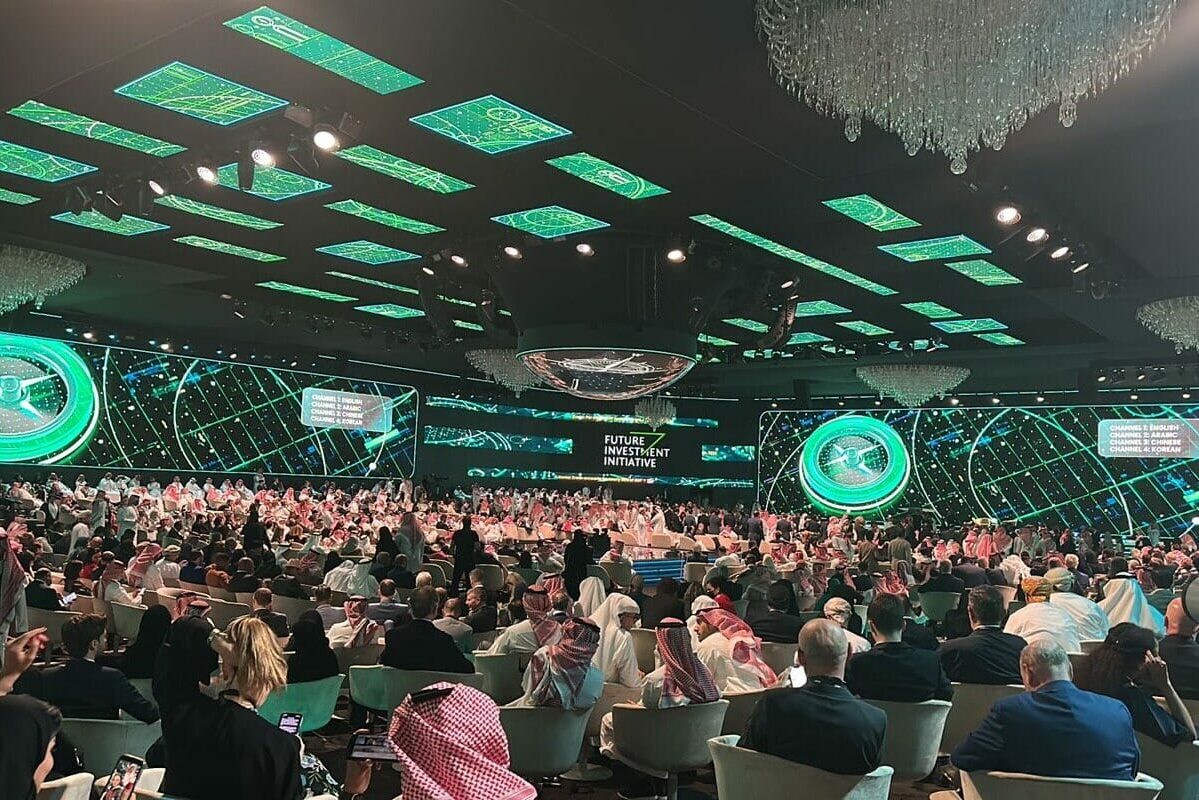The seventh edition of the Future Investment Initiative (FII), hosted by Saudi Arabia, enters its second day, bringing together thousands of participants from 90 countries.
The significance of this forum is especially relevant at this time, as the world experiences significant geopolitical shifts. It underscores the need for unity and solidarity to address challenges and create a fresh vision for the future.
Read more: Future Investment Initiative to draw over 5,000 high-profile participants in Riyadh
The discussions on the first day revolved around the topic of artificial intelligence (AI), emphasizing its significance and transformative potential in shaping the future landscape.
During one session, the remarkable advancements in technology sectors were highlighted, with a particular focus on AI. It was emphasized that AI has the potential to enhance global output by 14 percent and foster the creation of more inclusive societies, contributing to a sustainable model of development.
The impact of AI on global trade is multifaceted, with projections indicating that by 2030, approximately 70 percent of companies will engage with at least one form of AI technology.
In the context of this framework, Yasir bin Othman Al-Rumayyan, governor of the Public Investment Fund (PIF) and chair of the board of trustees of the FII Institute, expressed that many individuals will experience the benefits of AI in their daily lives, if not already. As business leaders, it is imperative for us to adapt to this ongoing process. However, it is also important to note that as AI advances, our energy consumption increases. The computational requirements for training machines and AI are substantial and continuously expanding.
Oil
During a side event, Saudi Energy Minister Prince Abdulaziz bin Salman emphasized that the recent billion-dollar acquisitions of two smaller competitors by U.S. oil giants ExxonMobil and Chevron underscored the enduring presence and significance of hydrocarbons in the energy sector.
He further added, “Exxon and Chevron’s acquisitions were not motivated by a desire to retain unproductive assets.”
The minister remarked that the acquisitions took place at an opportune moment, stating that “the timing could not have been more favorable.”
On Monday, Chevron announced its plan to acquire Hess in an all-stock deal worth $53 billion. This comes shortly after ExxonMobil, its leading U.S. counterpart, revealed its own acquisition of Pioneer Natural Resources for $59.5 billion, just two weeks prior.
Prince Abdulaziz highlighted that the energy transformation process necessitates the inclusion of hydrocarbons, including petrochemicals. He stated, “Our investments are not intended to create stranded assets. Saudi Arabia would not have made investments in expanding its production capacity if it did not anticipate a demand for additional production. As an example, the daily energy consumption to support the ChatGPT is estimated to be 564 megawatts per hour, equivalent to the energy consumed by 26 thousand American homes in a year.
For more news on the economy, click here.








